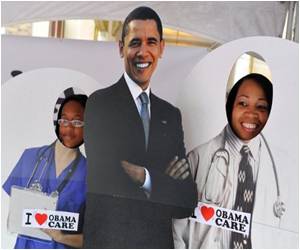The cancellations of policies are not all due to the Affordable Care Act which offers better health care, say experts.

“Before the Affordable Care Act, the worst of these plans routinely dropped thousands of Americans every single year,” he continued. The president called health insurance plans in the individual market “cut-rate” and “substandard” during that speech. Sen. Tom Harkin (D., Iowa) described them as “junk policies” last week.
Mark Pauly, professor of health care management at the University of Pennsylvania’s Wharton business school, felt that it has been illegal to drop consumers since enactment of the Health Insurance Portability and Accountability Act (HIPAA) of 1996. Section 2742 of that law mandates “guaranteed renewability” for individual plans.
“With all this trashing of the individual market, the claim that a lot of people got their coverage canceled, that’s not right—that’s not what happened,” Pauly said. “It wasn’t legal to do it since the late 1990s.” He said insurers terminated plans because of wrong information on applications—a provision that was “interpreted fairly generously to favor insurance companies” and led to lawsuits at times—but those were increasingly rare.
In fact Obama said in a May 2010 radio address that an insurer was “systematically dropping the coverage of women diagnosed with breast cancer,” an oblique reference to the health insurance giant WellPoint. This was disputed by the company.
Pauly, after studying the individual health insurance market actually found that people in poor or fair health had a greater chance of losing coverage in the small group insurance market, rather than the individual one.
Advertisement
Still, studies note that millions of younger people could save at least $500 next year by not signing up and paying a penalty, which will be $95 or one percent of a person’s income in 2014 and will rise to $695 or 2.5 percent by 2016. “[The exchanges] will implode” if enough young and healthy people don’t enroll, he said. “It will cease to be a place where you can get affordable coverage.”
Advertisement
Studies have shown that more generous insurance coverage does not necessarily translate into better health outcomes, he said. “An alternative would be a much less regulation-heavy approach, one that says ‘go get some insurance as long as it’s not really terrible’ and not try to do all of this social engineering around the edges,” he said. “Obamacare particularly raises premiums and makes the insurance a bad deal for low-risk people, and then we’re surprised when they still don’t want to be insured,” he said.
References:
Hannah Punitha (IRDA Licence Number: 2710062)
Daniel Wiser, November 2013
Source-Medindia












